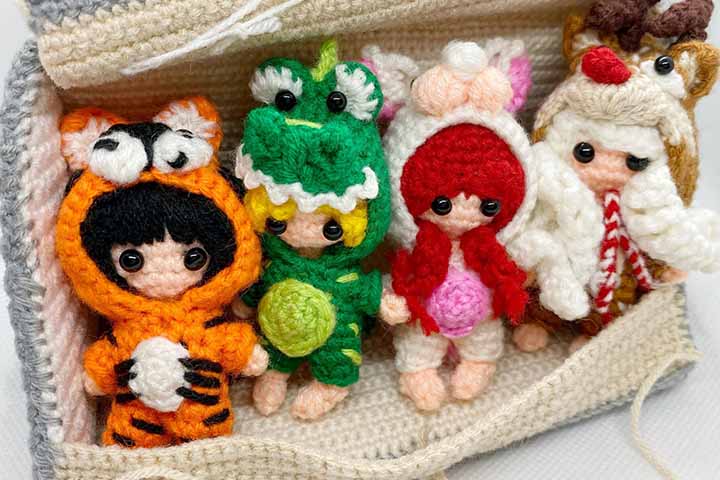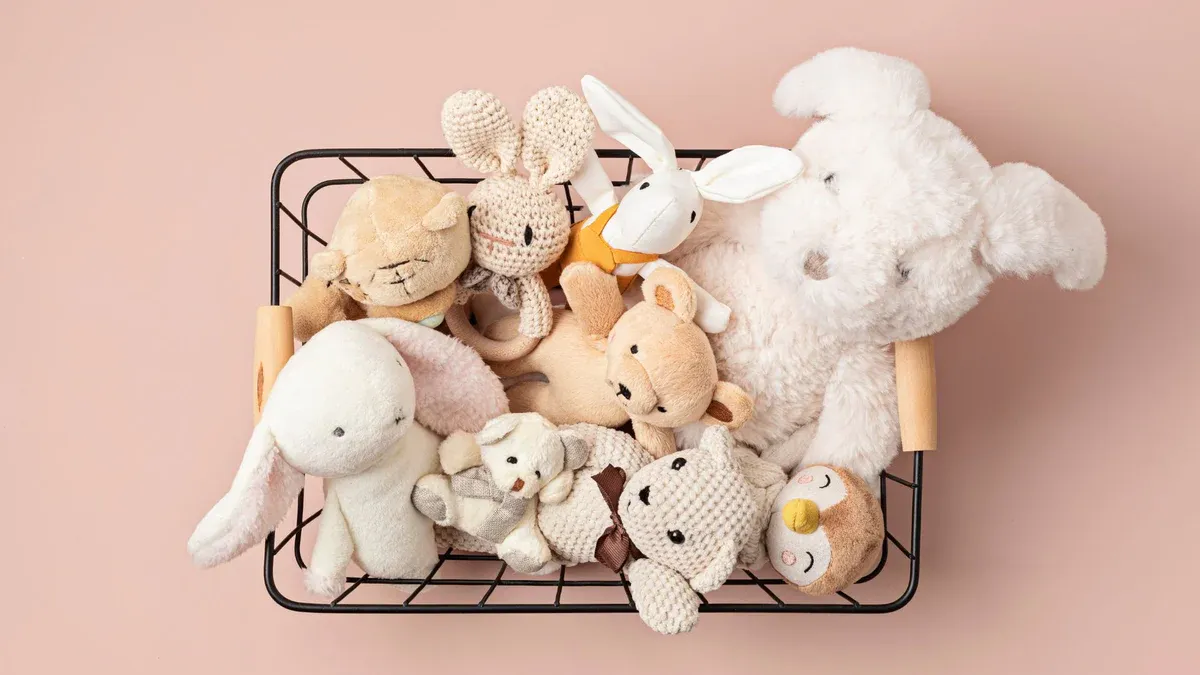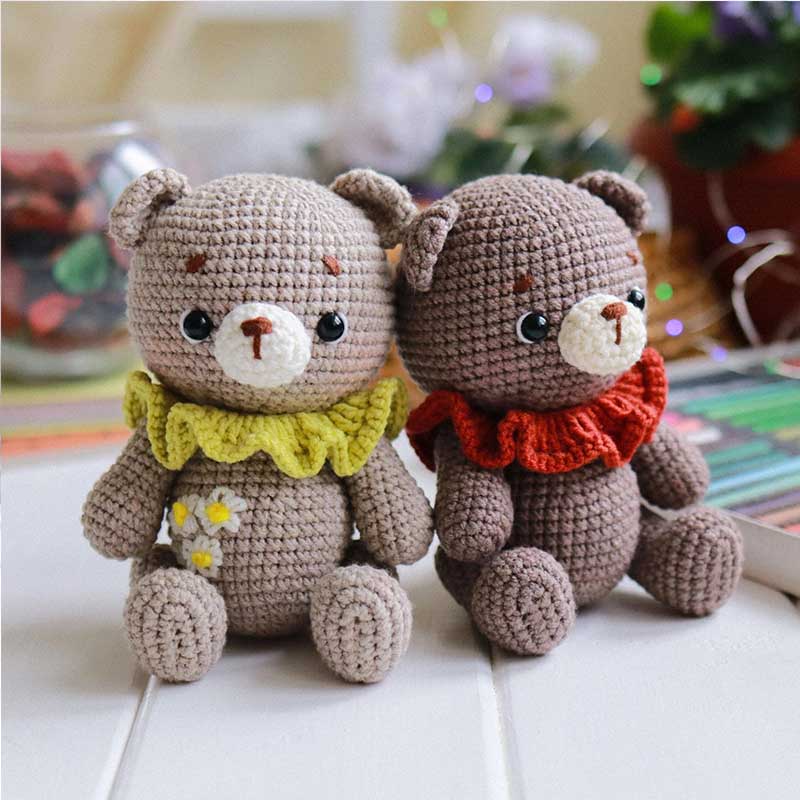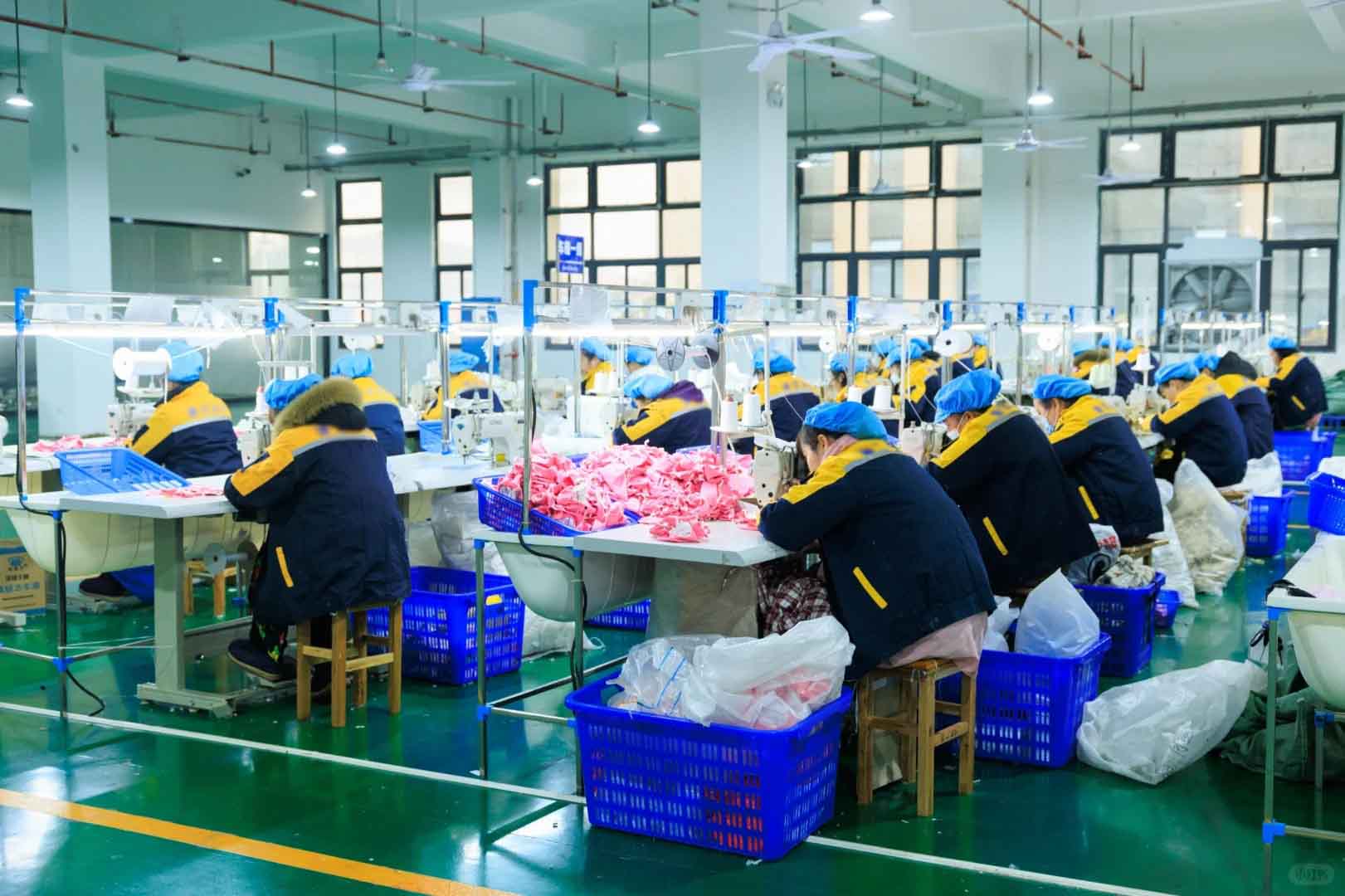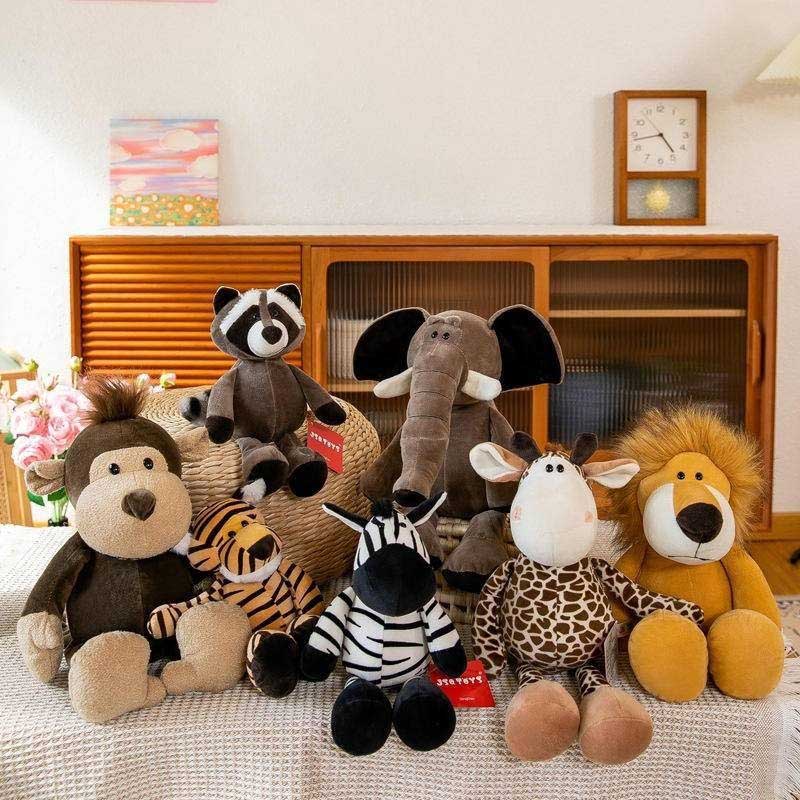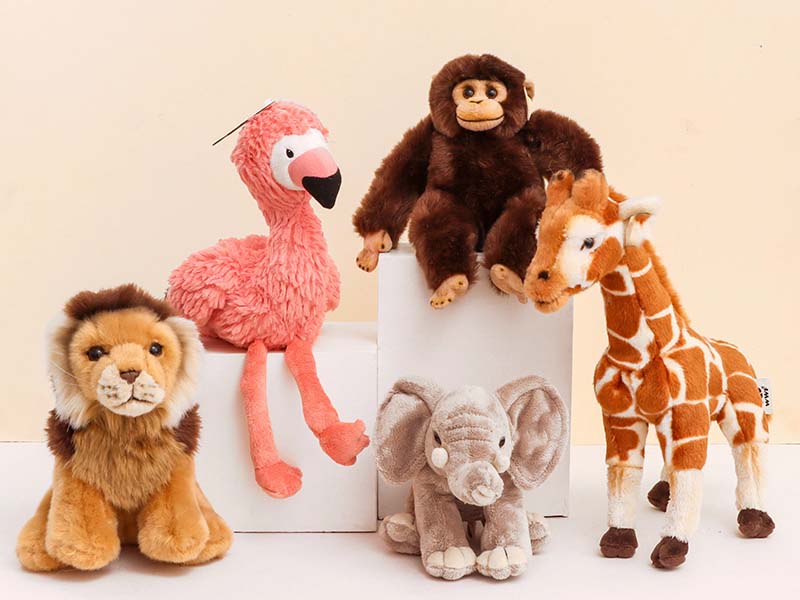Stuffed animals are more than toys for babies—they are safe companions that comfort, entertain, and support healthy growth. Choosing the right plush toy means balancing softness, safety, and emotional value, ensuring every moment with your baby is both joyful and secure.
The best stuffed animals for babies combine safety, softness, and durability. Parents should look for plush toys made from certified baby-safe fabrics like organic cotton or velboa, tested under CE or ASTM standards. Size also matters—smaller, lightweight plush toys are easier for babies to hold. In addition, machine-washable toys make life easier for parents. Choosing wisely not only protects your child but also provides long-lasting comfort and emotional security during their early years.
Let’s explore the key aspects that make baby plush toys safe, comfortable, and suitable for different stages of development.
1. Why Plush Toys Are Important for Babies

From the first months of life, babies begin to explore the world through touch, sight, and sound. A plush toy provides comfort during naps, reassurance in new environments, and a way for babies to bond emotionally. Unlike plastic toys, stuffed animals are soft, warm, and gentle on delicate skin, making them a safe first friend.
Plush toys also encourage sensory development. The varied textures, shapes, and colors give babies opportunities to discover through touch and sight. A baby reaching for a soft ear or squeezing a fluffy tummy is practicing essential motor skills. Over time, these small interactions contribute to hand-eye coordination and fine motor control.
Beyond comfort and learning, stuffed animals play a role in emotional growth. Babies often use plush companions as transitional objects, giving them security when separated from parents. Parents also use these toys during play to encourage communication and bonding. The psychological impact of a “favorite toy” should not be underestimated—it can help reduce stress, calm fears, and create lasting positive associations.
Plush toys are therefore more than decorative gifts. They are practical tools for early childhood development, combining emotional support with sensory stimulation. When chosen carefully, they can accompany a child from infancy through early childhood, offering benefits that extend far beyond playtime.
| Baby Stage | Plush Toy Role | Example Benefit |
| 0–6 months | Sensory stimulation | Soft textures calm babies |
| 6–12 months | Emotional comfort | Reduces separation anxiety |
| 12+ months | Learning support | Helps with role play and naming |
2. Key Safety Standards for Baby Plush Toys

Safety is the first priority when selecting plush toys for babies. Parents and buyers must ensure that products meet international safety standards, which are designed to protect infants from choking hazards, harmful chemicals, and poor construction.
For the U.S. market, ASTM F963 is the most important standard. It requires toys to pass tests for small parts, flammability, and toxic elements. In Europe, EN71 covers mechanical safety, flammability, and chemical safety, while CE marking indicates compliance. For global sourcing, certifications like ISO 8124 also carry weight.
| Region | Standard | Key Requirements |
| USA | ASTM F963 | No small detachable parts, non-toxic, flammability tested |
| Europe | EN71 / CE | Mechanical safety, restricted chemicals, stitching quality |
| Global | ISO 8124 | Similar to ASTM and EN71, widely recognized |
Another key aspect is labeling. Toys for babies under 36 months must clearly state age recommendations. Fabrics and fillings must be hypoallergenic and free from harmful dyes. Safety stitching is equally important: seams should be reinforced to prevent stuffing leakage.
For bulk buyers and brand owners, sourcing from factories with proven compliance is crucial. Not only does this reduce the risk of recalls, but it also builds consumer trust. Parents who see familiar marks like CE and ASTM are reassured of product reliability.
Ultimately, safety standards are not just regulations—they are promises to parents that their child’s well-being is fully protected.
3. Best Materials for Baby-Friendly Plush Toys

The choice of fabric directly impacts the safety, comfort, and durability of plush toys for babies. Materials must be soft enough for delicate skin, resistant to tearing, and easy to wash.
Cotton remains one of the most popular options. Organic cotton is especially valued because it is chemical-free and gentle on sensitive skin. Velboa and minky fabrics are also widely used; they are lightweight, velvety, and easy to maintain. For eco-conscious brands, recycled PET fabrics are becoming more common, offering both sustainability and softness.
| Material | Benefits | Recommended Use |
| Organic Cotton | Hypoallergenic, breathable, safe | Baby plush dolls, comforters |
| Minky Plush | Ultra-soft, smooth texture | Cuddly animals, sleep companions |
| Velboa Fabric | Short pile, easy to clean | Smaller animals, rattles |
| RPET Plush | Eco-friendly, durable | Brands with sustainability focus |
Filling is just as important as fabric. Premium polyester fiberfill is lightweight and washable, making it the most common choice. For higher-end products, corn fiber or organic kapok fillings can be used as eco alternatives.
Buyers should avoid beads, pellets, or any small stuffing material for baby toys, as they present choking hazards if a seam fails. Materials should always pass safety certifications for chemical content and flammability.
By focusing on safe, baby-friendly fabrics, buyers can ensure that their products appeal to both parents’ safety concerns and babies’ comfort needs.
4. Recommended Types of Plush Toys for Babies

Not every plush toy is suitable for infants. When selecting for babies, the focus should be on simplicity, softness, and safety.
The most common option is the plush comforter, often shaped like a small blanket with an attached animal head. These are lightweight, easy to grip, and perfect for soothing. Plush rattles are also popular, combining sound with softness to engage babies’ senses.
Stuffed animals in small, lightweight designs are suitable as first toys. Larger plush toys should only be introduced once a baby can sit up independently. Parents often prefer neutral shapes like teddy bears, rabbits, and elephants, which remain timeless and appealing.
| Type | Features | Best For |
| Comforter Blankets | Lightweight, soft, easy to carry | Newborn soothing and sleep |
| Plush Rattles | Sound + touch interaction | Sensory development |
| Small Stuffed Toys | Easy to grip, safe size | First companions |
| Large Plush Toys | Oversized, cuddly | Older infants and toddlers |
For wholesale buyers and retailers, offering a balanced mix of these categories allows better coverage of different age ranges. Personalization options, such as embroidered names or logos, can increase market value and create stronger customer loyalty.
5. How to Clean and Maintain Baby Plush Toys

Parents value toys that can be kept clean with ease. Plush toys for babies often come in contact with drool, food, and daily handling, making regular cleaning essential for hygiene.
Most baby plush toys are machine washable, provided they are made from high-quality fabrics with reinforced stitching. Gentle cycles with mild detergents are recommended. Toys should be air-dried instead of tumble-dried to preserve shape and softness. For toys with delicate fabrics, spot-cleaning with warm water and soap is effective.
| Cleaning Method | Recommended Use | Notes |
| Machine Wash | Most cotton, velboa, minky fabrics | Use laundry bag, mild detergent |
| Spot Cleaning | Delicate plush fabrics | Avoid strong chemicals |
| Surface Wiping | Large toys, quick clean | Use baby-safe wipes |
Parents should avoid plush toys with electronic components for infants, as they complicate cleaning. For buyers, this means promoting washable, low-maintenance toys as part of the sales pitch. A product marketed as “machine washable” often stands out for parents who prioritize hygiene.
Proper maintenance ensures not only cleanliness but also extends the life of the toy, preserving its softness and safety over time.
6. Tips for Choosing the Right Plush Toy for Your Baby

Parents often struggle with endless choices when buying for their baby. A few simple guidelines can make the decision easier and safer.
First, always check the age label. Toys should clearly state suitability for “0+ months” or “3+ months.” Next, examine the construction. Seams must be strong, with no detachable parts like buttons or plastic eyes. Embroidered features are the safest choice.
Material matters as well. Hypoallergenic fabrics such as organic cotton or minky are ideal. Parents should also consider size: a toy should be easy for a baby to hold, without covering the face or posing suffocation risks.
| Factor | What to Look For | Why It Matters |
| Safety Label | CE, ASTM, EN71 certifications | Ensures international compliance |
| Construction | Reinforced seams, embroidered details | Prevents choking hazards |
| Material | Hypoallergenic, non-toxic | Gentle on baby skin |
| Size & Weight | Lightweight, small to medium | Easy to grip, safe to cuddle |
For wholesale buyers, promoting these features in marketing materials helps reassure customers and parents. By highlighting safety, comfort, and ease of care, brands can build stronger trust and higher sales.
Stuffed animals for babies must combine safety, softness, and developmental value. Parents look for toys that nurture comfort while meeting the highest standards. For buyers and retailers, working with trusted factories ensures quality, certifications, and customization options. At Kinwin, we provide baby-friendly plush toys that are safe, durable, and tailored for global markets. Contact us today to explore customized plush solutions for your business.


